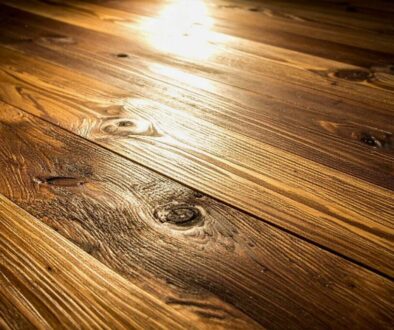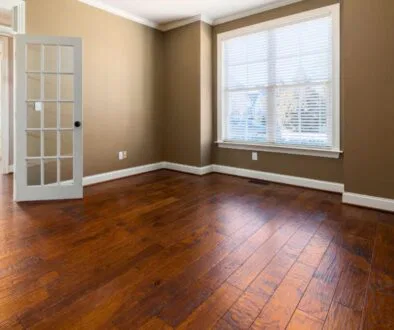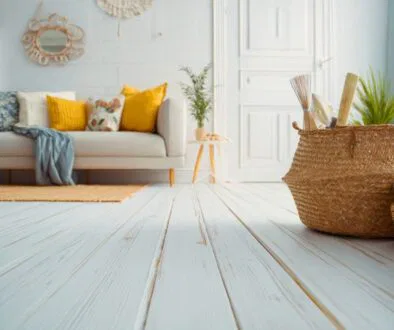Why Should You Get A Floating Floor? What You Need To Know
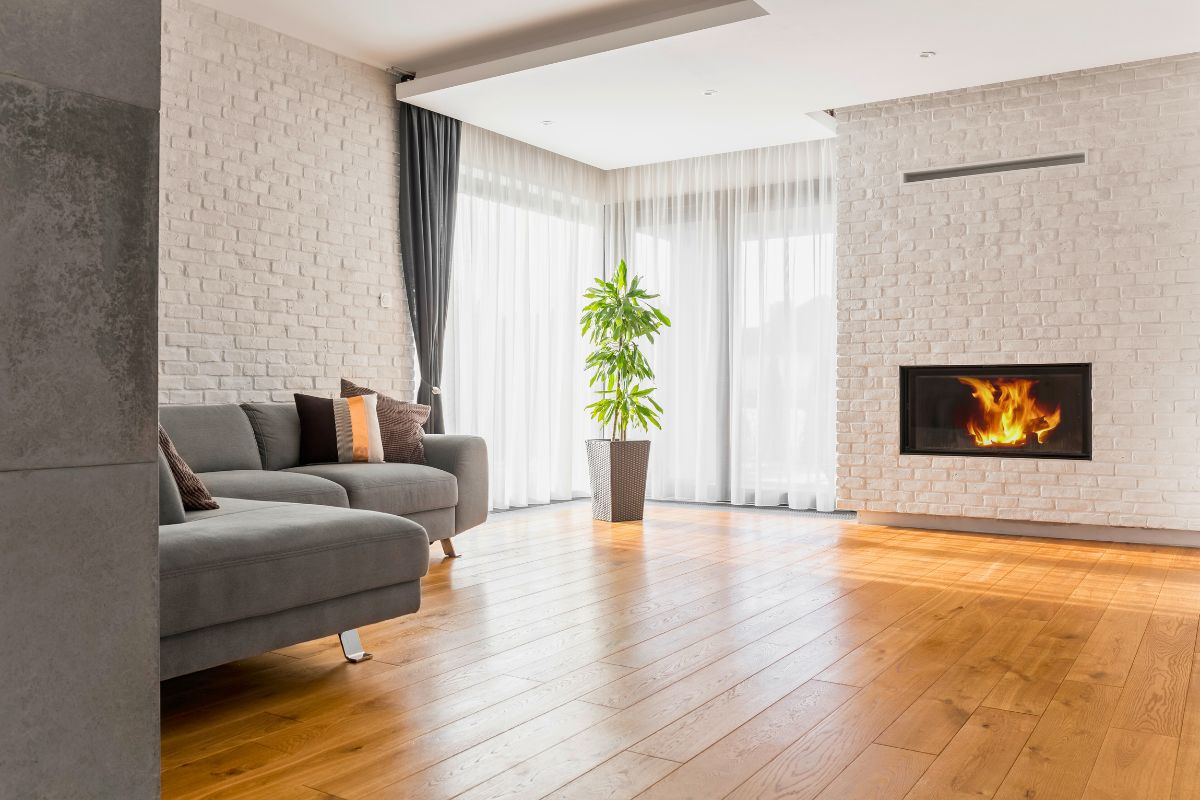
Published April 17, 2025
Are you thinking about upgrading your floors but unsure where to start? Floating floors might seem like the perfect option. They’re versatile, easy to install, and loved by DIYers and pros alike. But are they the best fit for your space? Should you get a floating floor, or could another option work better?
In this article, we’ll explore everything about floating floors. Get the insights you need to decide if they’re right for your home.
What Is A Floating Floor, And How Does It Work?
A floating floor is not a specific flooring material but a unique installation method. Unlike traditional floors that are nailed or glued to the subfloor, a floating floor “floats” above it. The planks or boards snap and lock together, creating a stable surface without adhesives or nails. It’s similar to assembling a jigsaw puzzle.
Floating floors usually have an underlayment, like cork or fiber, which improves soundproofing and adds comfort underfoot. They’re versatile, easy to install, and work well on many surfaces and in various spaces.
How Floating Floors Differ From Traditional Flooring
Traditional floors, such as solid hardwood or tile, are fixed to the subfloor using glue or nails. This method ensures durability. However, installation takes time and effort, and removing or replacing these floors can be difficult.
In contrast, floating floors offer a more convenient alternative. Designed with an interlocking mechanism, they’re quicker to install and easier to remove. However, for optimal performance, a stable and sturdy subfloor is essential.
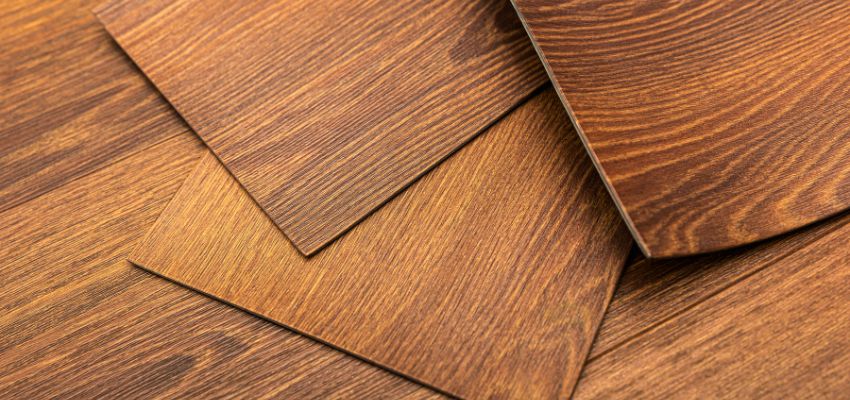
Types Of Floating Floor Materials
Floating floors come in various materials, each offering distinct benefits and disadvantages depending on your needs and space:
- Laminate. Laminate is a popular, cost-effective, and durable choice. It looks like real wood or stone, resists scratches, dents, and wear, and is easy to clean and maintain. This makes it perfect for high-traffic areas like living rooms or hallways.
- Vinyl. Vinyl floating planks are perfect for moisture-prone areas like kitchens, bathrooms, and basements. They’re loved for being waterproof. Modern options mimic wood or tile textures. Many also have a soft underlayment for extra comfort.
- Engineered wood. A premium choice that combines the beauty of real wood with the strength and stability of plywood layers. Engineered wood looks like hardwood flooring. It’s less likely to warp with temperature or humidity changes. It’s perfect for those seeking a luxurious look without the maintenance demands of solid wood. For an eco-friendly aesthetic, consider reclaimed engineered wood. Vintage & Specialty Wood provides aged, sustainable materials that add warmth and character to any room.
- Cork or bamboo. Both are eco-conscious options for reducing their environmental footprint. Cork is soft underfoot and naturally soundproof. It’s also great for insulation. Bamboo offers a sleek, modern look and excellent durability. Both materials are renewable and ideal for sustainable building projects and homes.
Each material works for different spaces and needs. Consider durability, water resistance, and style before deciding.
Pros And Cons Of Floating Floors
Floating floors have become a favorite for modern homes thanks to their ease of installation and remarkable versatility. However, like any flooring option, they come with their own set of benefits and challenges. To help you determine whether floating floors fit your home, here’s a closer look at their pros and cons.
Key Benefits Of Choosing A Floating Floor
Effortless Installation
Floating floors are renowned for their simple, DIY-friendly installation process. With no need for specialized tools or messy adhesives, you can often complete the entire project in just one day. Perfect for those looking to save time and effort.
Cost-Effective Solution
Compared to traditional flooring options, floating floors are a more affordable choice. Both material and labor costs are lower, and if you opt for a DIY approach, you’ll save even more. It’s a budget-friendly way to achieve a polished look without compromising quality.
Unmatched Versatility
Floating floors can be installed over any surface, including tile, concrete, or existing flooring. Their flexibility makes them ideal for retrofitting projects or spaces with varied flooring needs.
Potential Drawbacks
Unsuitable For High-Humidity Spaces
Vinyl is waterproof. However, some floating floors, like engineered wood, are not ideal for humid areas, including basements. Excessive moisture can compromise their performance and longevity.
Limited Refinishing Potential
Unlike traditional hardwood floors, most floating floors cannot be sanded or refinished. As a result, their lifespan heavily depends on the durability of the material you select.
When To Choose A Floating Floor
- Best scenarios for floating floor installation. Floating floors are a suitable option if you want an affordable, hassle-free way to upgrade your flooring without a complete renovation. They’re ideal for rental properties or homes requiring updates over time.
- Ideal rooms and conditions. Floating floors are perfect for bedrooms, living rooms, and offices. However, they’re less suitable for areas with high humidity unless you opt for moisture-resistant materials such as vinyl.
- Budget-friendly and DIY-ready. Floating floors are a great solution for homeowners on a budget or those who enjoy tackling DIY projects. They’re easy to install and use affordable materials, making them an excellent choice for budget-friendly renovations.
Must-Know Installation Insights
A sturdy subfloor is the foundation of a flawless floating floor installation. Ensure the surface is level, clean, and completely dry before you begin. Proper preparation will enhance the stability and lifespan of your new flooring.
Essential Tools And Materials
For a smooth installation, gather the right tools: a tape measure, pry bar, rubber mallet, and utility knife. If your flooring lacks a pre-attached underlayment, add one. Choose a high-quality option for better cushioning and sound absorption.
Pro Tips For A Seamless Installation
- Allow the flooring materials to acclimatize to the room’s temperature and humidity for 24-48 hours to prevent warping or buckling later.
- Inspect your subfloor for uneven spots and address them beforehand to ensure a level surface.
- Place spacers along the room’s edges to accommodate the flooring’s natural expansion and contraction.
You can install a floating floor like a pro with the right tools. Proper preparation ensures it looks great and lasts for years.
Maintenance And Lifespan Of Floating Floors
Floating floors are popular for their easy installation and versatility, but proper care is essential for lasting durability. With the correct maintenance, they can stay functional and look great for years, and knowing how to care for them will help extend their lifespan.
Tips For Daily Care And Cleaning
Floating floors are low-maintenance, making them a practical choice for busy households. For laminate or vinyl flooring, regular sweeping and the occasional damp mop are needed to keep them looking their best. However, it’s crucial to avoid excessive water exposure, particularly for engineered wood, as this can cause damage over time.
Easy Repairs For Common Issues
One key advantage of floating floors is their ease of repair. If a plank becomes damaged, there’s no need to disrupt the entire floor. Simply unlock the damaged section and replace it with a new piece.
Lifespan Of Floating Floors
When properly maintained, floating floors can have impressive longevity, with their lifespan mainly depending on the material. Vinyl and laminate floors can last up to 30 years, while high-quality engineered wood can endure for 50 years or more. In some cases, well-cared-for floating floors may even last as long as 80 years, offering durability and value over the long term.
Frequently Asked Questions
Are floating floors durable enough for high-traffic areas?
Absolutely. If you pick the right material. Vinyl and laminate are great for high-traffic areas. They resist scratches and moisture exceptionally well.
Will floating floors impact my home’s resale value?
High-quality, professionally installed floating floors can boost your home’s appeal and resale value. However, lower-quality materials or poor installation could have the opposite effect.
Can you install floating floors over existing flooring?
Yes, floating floors can often be installed directly over surfaces like tile or concrete as long as the base is even and in good condition.
Do floating floors make noise?
Floating floors can sound hollow when walked on. To reduce this, use a premium underlayment. You can also choose planks with built-in soundproofing.
Are floating floors a good option for apartments or rentals?
Yes. Floating floors are cost-effective and simple to install and remove, making them perfect for renters or temporary upgrades.
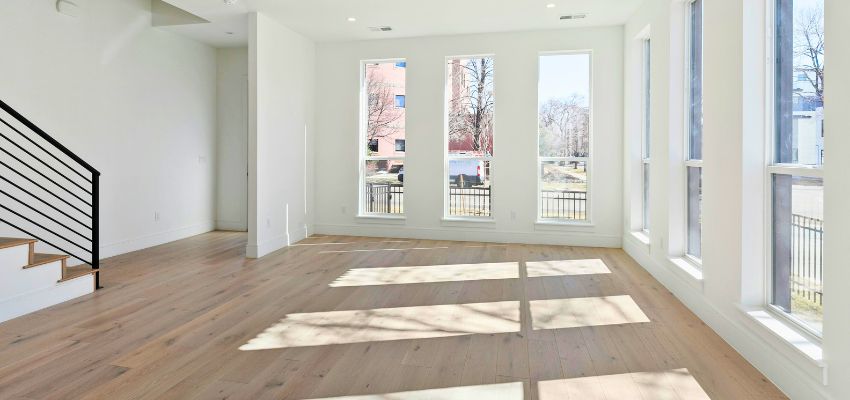
Make The Right Choice For Your Space
Should you get a floating floor? Floating floors are an affordable, versatile, and easy-to-maintain option suitable for many spaces. They’re great for quick upgrades but may not perform well in high-moisture or high-traffic areas and can’t be refinished. Perfect for homeowners, renters, or businesses on a budget, floating floors offer a balance of durability and style when you choose the right material. Explore your options today and decide if a floating floor fits your space perfectly.
Looking for the perfect flooring to complete your space? Whether you prefer rustic reclaimed wood or sleek modern planks, Vintage & Specialty Wood has it all. Explore premium floating floors that blend style and quality. Contact their team today!
Hire The Timber Experts For Your Next Project
Vintage & Specialty Wood should be your source of the highest quality timbers from around the world. When it comes to fabricating and installing reclaimed wood or specialty wood products in your home, we don’t cut corners. We offer many reclaimed wood and specialty wood products such as Douglas Fir, white oak, and much more. We also offer timber framing and wood flooring services as well. Contact our team today to speak to a timber expert about what Vintage & Specialty Wood can do for you.

This Blog Is Fact Checked
This content has undergone meticulous fact-checking by our team of internal experts. Gain a deeper understanding of the high editorial standards we uphold on our website here.

About The Author
Experience, exploration, and knowledge are the hallmarks of writer Rei Bayucca. Her dedication to crafting articles that both inspire and educate will leave you thinking long after you’ve finished reading.

